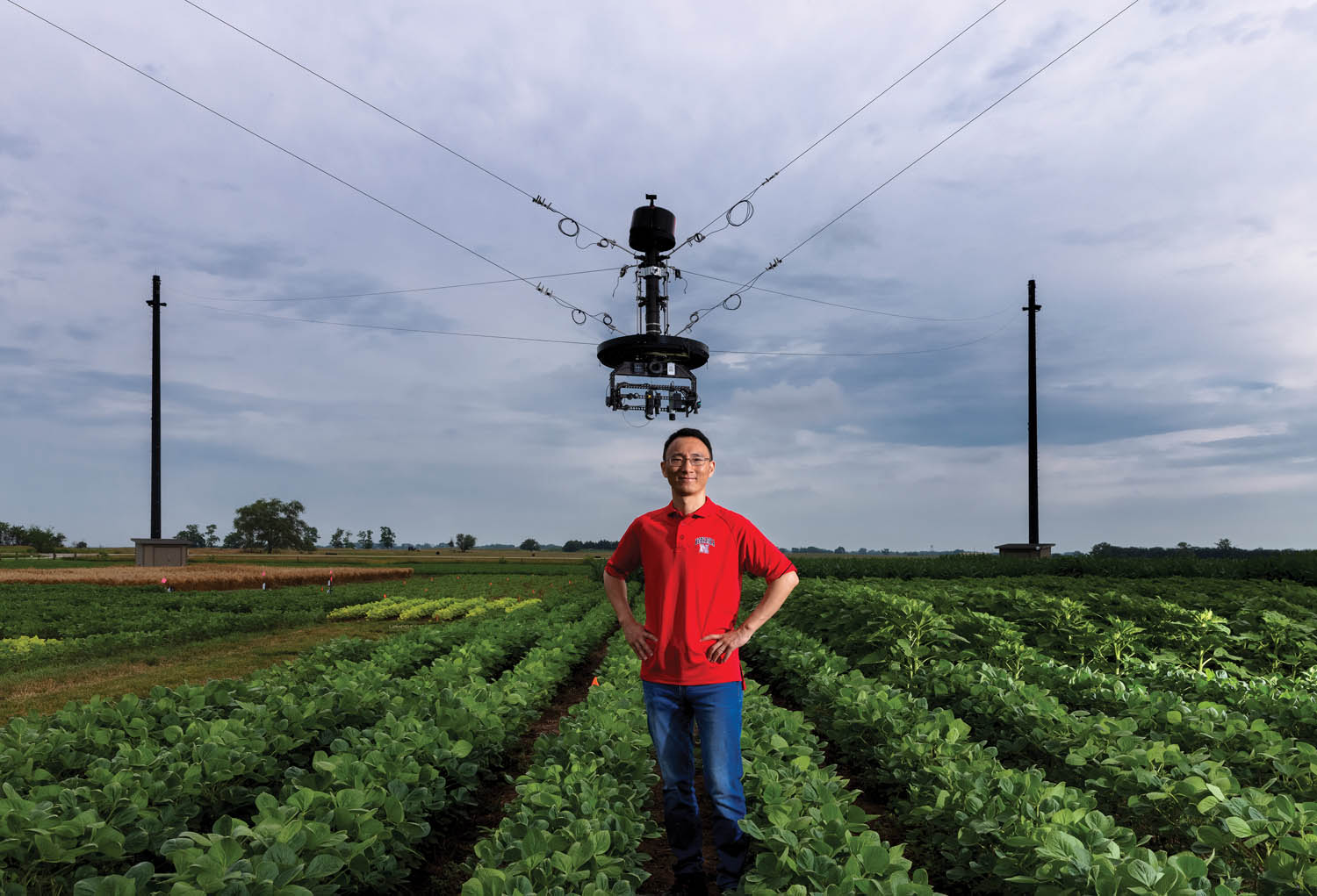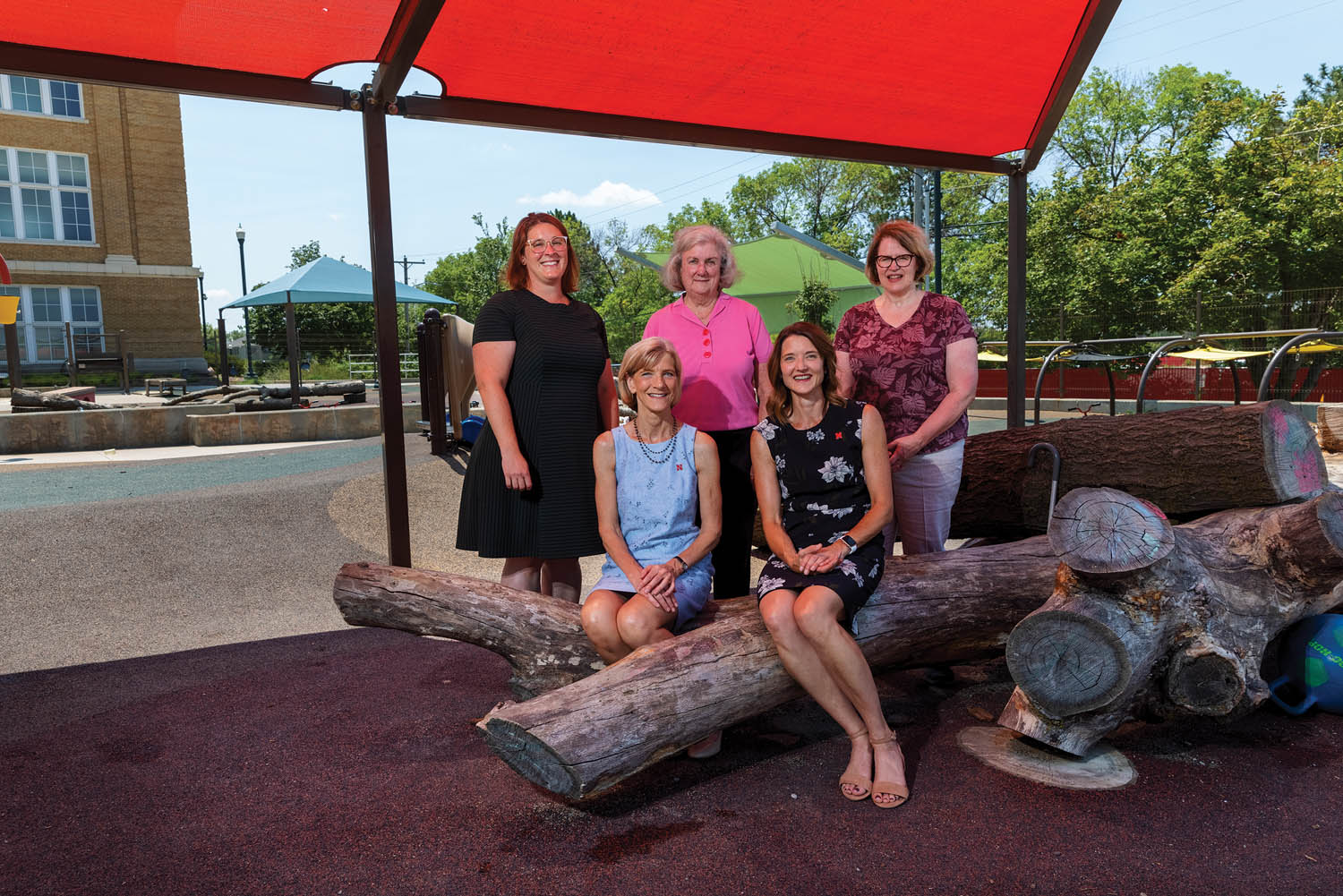Successful irrigated agriculture depends on more than farmers and technology. It also needs a robust business ecosystem. Nebraska researchers are building on established connections in Rwanda to study and support those ecosystems elsewhere in sub-Saharan Africa. Researchers with the Daugherty Water for Food Global Institute are using a three-year, $1 million grant from the United… Continue reading Improving Business Models for Irrigation in Africa
Category: Grand Challenges
Investigating Ecological Impacts on a National Scale
Burning fossil fuels, fertilizing crops and lawns, developing urban areas and other human activities are increasing environmental concentrations of essential elements such as carbon, nitrogen and phosphorous. All organisms need these elements to survive, but an imbalance alters water quality, biodiversity and evolution. To equip researchers and policymakers to study, predict and manage this ever-changing… Continue reading Investigating Ecological Impacts on a National Scale
Restoring Nebraska’s Forests
Nebraska’s forests are in trouble. Undesirable species are moving in, crowding out the oaks, elms and cottonwoods that signify a healthy Nebraska hardwood forest. In the past, fires and floods scoured the forest floor, allowing for natural tree regeneration and removed uninvited cedars, basswoods and hackberries. Now it’s up to humans. To better manage the… Continue reading Restoring Nebraska’s Forests
Advancing High-Tech Plant Phenotyping
Historically, plant breeders have chosen varieties to propagate by manually measuring and observing differences between plants. Today, technology can identify minute variations better and faster. These advances allow scientists to trace desirable traits back to specific genes, opening new avenues to improving plant health and increasing yields. But high-tech phenotyping, as it’s known, is so… Continue reading Advancing High-Tech Plant Phenotyping
Penguin Hemoglobin Evolved to Meet Oxygen Demands
Penguins are deep divers that can hold their breath for up to 30 minutes, giving them time to hunt for dinner. This ability is thanks, in part, to their distinctive hemoglobin, the body’s oxygen courier that travels via the bloodstream. Nebraska biologists uncovered hemoglobin’s evolutionary trick that turned penguins into underwater specialists. Jay Storz, Willa… Continue reading Penguin Hemoglobin Evolved to Meet Oxygen Demands
Studying Nitrate News Coverage
For years, rural Nebraska communities have faced expensive water treatment overhauls due to groundwater contaminated with nitrates, primarily from fertilizer runoff. Jessica Fargen Walsh, assistant professor of journalism, sought to better understand Nebraska’s news coverage of this important topic. She teamed with East Tennessee State University to analyze articles published in Nebraska newspapers over nearly… Continue reading Studying Nitrate News Coverage
Interacting with Voice Assistants Eases Loneliness
“Good morning, Alexa.”“Good morning, Martha.” Interacting with personal voice assistants such as Amazon’s Echo Dot, otherwise known as Alexa, can lessen loneliness in older Americans who live alone, according to a Nebraska study. Loneliness – the perception of feeling disconnected – is so pervasive, especially among older people, that it’s considered an epidemic with public… Continue reading Interacting with Voice Assistants Eases Loneliness
Center Focuses on Technology Governance
Technology has evolved at breakneck speed the last 150 years – from telephones, computers and the internet to recent breakthroughs like drones, genetic tools and mRNA vaccines. But laws and regulations aren’t keeping pace. That’s why a technology like CRISPR, the gene-editing tool, has vast potential to cure diseases, but also to drive nefarious activity… Continue reading Center Focuses on Technology Governance
Helping Preschool Teachers Better Manage Stress
A restless child has trouble napping at preschool and seeks his teacher’s attention. Two preschoolers battle over a toy in a busy classroom, sparking a conflict that ends in hitting or crying. Countless similar scenarios unfold daily at child care centers nationwide, which enroll more than 60% of 3- to 5-year-olds in the U.S. How… Continue reading Helping Preschool Teachers Better Manage Stress
Strengthening Support for Children with Disabilities
Parents of young children with disabilities face unique challenges and special stresses. So, too, do the personnel who help these families. Coaching gives early childhood intervention workers tools and assistance to help them better meet the needs of the families they support, ultimately improving children’s development. Nebraska researchers partnered with the state to strengthen its… Continue reading Strengthening Support for Children with Disabilities









